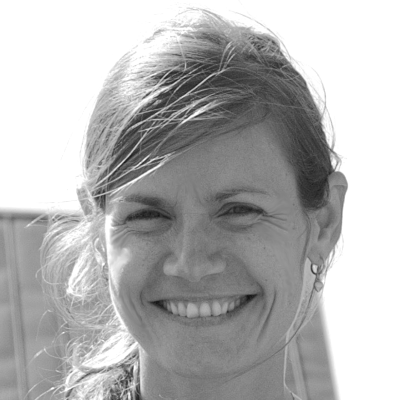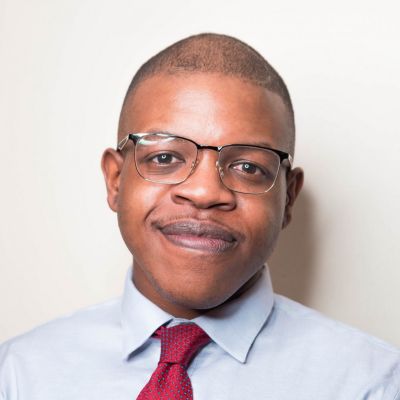
12 people have watched this webinar.
Tune in for a webinar presented by LISC and Next city on how local governments and partners can help advance an equitable small business recovery.
March 21, 2022
During the webinar we will hear findings from LISC and Next City’s new playbook Equitable Pathways to Small Business Recovery: An All-Hands Approach, including a framework for developing and implementing small business support initiatives in ways that advance equitable economic outcomes. The webinar will also feature a discussion with Patricia Voltolini, Senior Research Associate, LISC Knowledge Management, Karen Kelleher, Executive Director, LISC Boston; Segun Idowu, Chief of Economic Opportunity and Inclusion, City of Boston; and Kareem Kibodya, Co-Policy Lead, Black Economic Council of Massachusetts. They will discuss how successful small business support initiatives have centered the needs of entrepreneurs of color and those who historically have experienced barriers and disadvantaged access to resources. The discussion will be grounded in Boston as a case study.

Moderator:
Lucas Grindley, Executive Director, Next City
Lucas is the former President of Pride Media and led LGBTQ brands The Advocate, Out magazine, PRIDE.com, Out Traveler, Chill magazine, and Plus magazine. Grindley was also editor in chief of The Advocate, the longest running LGBTQ magazine in the country. In both 2016 and 2018, NLGJA honored Grindley as “LGBT Journalist of the Year” with its Sarah Pettit Memorial Award. From 2008 through 2011, he was managing editor for online at National Journal magazine, covering politics and policymaking in Washington, D.C. He now lives in Philadelphia with his husband and twin daughters. Follow him on Twitter @lucasgrindley.

Speakers:
Patricia Voltolini, Senior Research Associate, LISC
Patricia is a mixed-methods researcher with expertise in local economic development and commercial and neighborhood revitalization. Her current work involves evaluating LISC’s impact in communities across the country, developing innovative research that explores and highlights topics of emerging importance in the field, and assisting data and research needs of LISC local offices and national programs. Prior to joining LISC she was a local economic development consultant conducting research and strategic planning for downtown and commercial corridor revitalization projects throughout the country. She holds a Ph.D. in Planning and Public Policy from Rutgers University, and is a Visiting Assistant Professor in the Graduate Center for Planning and Environment at the Pratt Institute.
_364_343_80.jpg)
Karen Kelleher, Executive Director of LISC Boston
Karen E. Kelleher brings more than 20 years of experience driving housing affordability and building strong, inclusive communities to her role as Executive Director of LISC Boston. She also brings deep, strategic capacity in finance, development, technical assistance and policy. Before joining LISC, Karen served as Deputy Director of the Massachusetts Housing Finance Agency (“MassHousing”), where she led a reinvention of the agency’s multifamily loan programs and policies, resulting in record lending volume and record levels of affordable housing preservation. At LISC, Kelleher has led LISC’s role coordinating the Equitable PPP Access Initiative, and launching LISC’s digital growth accelerator program for entrepreneurs of color. She is a founding member of the Coalition for an Equitable Economy and serves on the coalition’s Executive Committee.

Segun Idowu, Boston’s Chief of Economic Opportunity and Inclusion
A lifelong resident of Boston, Segun is a proud product of the Boston Public Schools. Following his graduation from Boston Latin Academy, he earned his Bachelor of Arts in History at Morehouse College in Atlanta, Georgia, and honors from the Phi Beta Kappa and Golden Key Societies.
In August 2014, he organized the Boston Police Camera Action Team (BPCAT) with his colleague, Shekia Scott. BPACT’s mission was to further accountability and safety in Boston through the mandatory use of police body-worn cameras.
In April 2020, Boston Magazine recognized Segun as one of the “100 Most Influential People in the City of Boston.” In July, the Boston Globe recognized him on the front page of their Sunday edition as a “Man of the Moment” for his work in ramping up BECMA’s efforts to advocate for and direct resources to Black businesses impacted by the COVID-19 pandemic, and later honored him as a “Bostonian of the Year” that December.

Kareem Kibodya, Co-Policy Lead
Kareem Kibodya was born and raised in Springfield, MA. As a 1st generation American with Tanzanian roots his purpose is to serve as a Voice for the Black community in Massachusetts and throughout our global diaspora.
After he obtained a B.S. International Relations and Politics and a B.S. in Psychology from Carnegie Mellon University, he returned to Springfield to serve his home community by working to advocate for social policy issues and advance economic development projects. Having worked on political campaigns and as an Aide at the local, state, and federal level, Kareem has developed a deep understanding of the inner workings of politics, and he is committed to utilizing that knowledge to empower our under-resourced communities. He embodied this mentality in his role as Organizing Director for Congressman Richard Neal, where he recruited and trained a team of over 60 high school and college aged interns, that primarily consisted of women and people of color. Most recently, Kareem served as an Aide to Chairman Neal where he focused on constituent services, community outreach, and federal grants.
During the pandemic Kareem worked with the Association of Black Business and Professionals to create grant programs to support Black-owned businesses and a pilot program to provide local students of color with internship stipends to promote placemaking opportunities and reduce the financial burden they might have experienced with an unpaid internship.

20th Anniversary Solutions of the Year magazine

December 16, 2020

April 21, 2021
_400_400_s_c1_(1)_400_400_80_s_c1.jpg)
May 10, 2023
_400_400_80_s_c1.jpg)
September 16, 2020